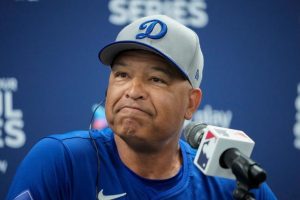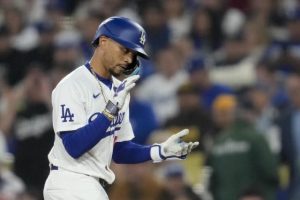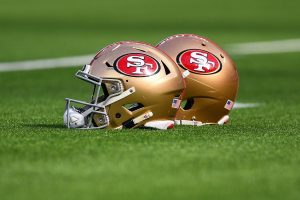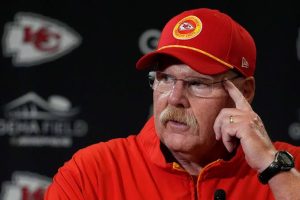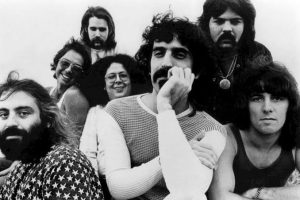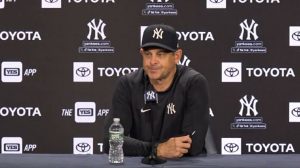
Apr 20, 2024; Chicago, Illinois, USA; Chicago Cubs starting pitcher Shota Imanaga (18) during the first inning against the Miami Marlins at Wrigley Field. Mandatory Credit: Patrick Gorski-USA TODAY Sports
NL Central Notes: Imanaga, Pirates, Brewers, Carpenter, Reds
Before the Cubs signed Shota Imanaga to a four-year, $53MM deal, the other finalists for Imanaga’s services were the Red Sox, Pirates, and Brewers, according to USA Today’s Bob Nightengale. Boston’s interest in Imanaga was well-known, and Pittsburgh had also been linked to Imanaga’s market, even if the Bucs’ traditional lack of spending makes it somewhat surprising to learn that they apparently came relatively close to landing the southpaw. Of course, “finalist” is a bit of a nebulous term, and it isn’t known just how close the Pirates might’ve come to Chicago in the bidding. For instance, the Red Sox offered Imanaga two years and $26MM in guaranteed money according to Alex Speier of the Boston Globe, with two more vesting years covering the 2026 and 2027 seasons.
The Brewers are also a surprise entry, as it wasn’t publicly known that they were in on Imanaga at all, let alone one of the last four suitors in the running for his services. Milwaukee also often operates with a limited payroll (albeit not as limited as the Pirates’ budget), and it’s interesting to speculate on what the team might’ve offered Imanaga, or whether signing the Japanese star might’ve kept from the Crew from any of their other winter business. For instance, if the Brewers had signed Imanaga, would they have still had enough spending capacity to bring back Brandon Woodruff and/or Wade Miley, or would any further pitching additions would’ve been strictly of the lower-cost or minor league variety if Imanaga had been the team’s big offseason strike. As Nightengale observes, any of Imanaga’s other suitors might have some regrets given how the left-hander has gotten his MLB career off to such a great start.
Some other notes from around the NL Central…
Matt Carpenter recently received a cortisone shot to deal with the oblique strain that has kept him on the injured list for almost four weeks, MLB.com’s John Denton writes (X link). The shot led to a shutdown, and it isn’t clear when Carpenter will be ready to begin a minor league rehab assignment, though he has been able to take batting practice. Carpenter reunited with the Cardinals on a one-year deal this past winter, but played in just three games before suffering his oblique problem.
X-rays were negative on both Christian Encarnacion-Strand and Tyler Stephenson after the Reds duo were each hit on the hand by pitches in Saturday’s game. Encarnacion-Strand might be the slightly more serious situation of the two, as Gordon Wittenmyer of the Cincinnati Enquirer writes that the infielder’s X-ray revealed a small previous fracture in the same spot that CES was hit on Saturday. Encarnacion-Strand said he had “no clue” about the origin of the older injury, and he hadn’t felt any discomfort prior to this most recent HBP. It isn’t yet clear if Encarnacion-Strand will get an MRI to further explore the injury, but he hoped to return to the lineup within a day or two.
The New York Yankees left Milwaukee with a 15-5 win over the Brewers on Sunday to take two games in a three-game set. One particular call from that matchup is now being scrutinized.
During the sixth inning of play, Aaron Judge broke up a double play in a potentially illegal manner, swatting the baseball during his slide as it was thrown from second base down to first.
Most believed the call should’ve been made to award Milwaukee the double play. Instead, the umpiring crew said that the blocked ball was the result of the natural motion of Judge’s slide.
Looking at the final box score, you wouldn’t think that this particular play had much effect on the final outcome, but that might be up for debate.
The play occurred with the teams tied at 4-4, and the Yankees would use the extra out to spark a seven-run inning. Each of those runs crossed the plate with two outs on the board.
The game quickly shifted from nail biter to blowout with New York taking an 11-4 advantage. Had the call been made in the opposite direction, the disastrous inning might’ve never been!
Aaron Judge didn’t see anything wrong with the slide.
After the game, he said as much in an interview.
“You can look back at any picture you want of me sliding into second base,” he responded when questioned. “That’s always happened.”
The umpires saw things differently after seeing postgame replays, but unfortunately, they weren’t given the chance to realize that change of heart in real time. The play wasn’t reviewable!
The crew, which initially ruled in favor of Judge, admitted to its mistake when the game was over. Too little, too late!
“On the field we got together and did the best we could to come up with a correct answer,” crew chief Andy Fletcher said. “After looking at it on replay, it appears that the call was missed. It was an unnatural part of his slide.”
